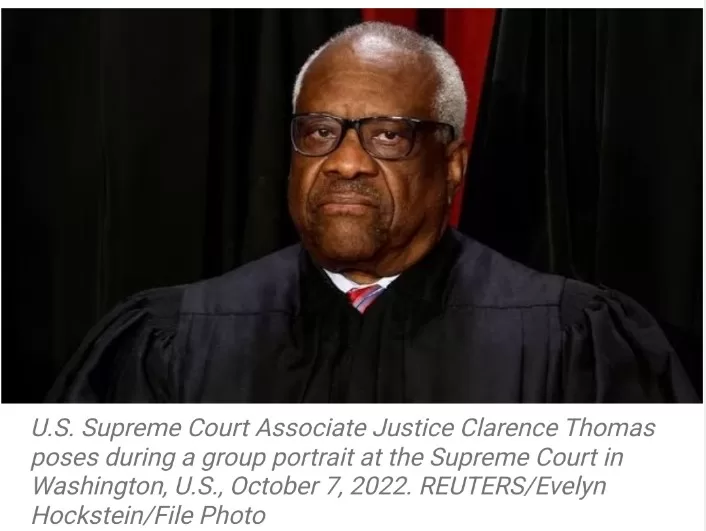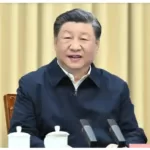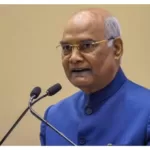In recent revelations, US Supreme Court Justice Clarence Thomas has come under intense scrutiny for his acceptance of private jet flights generously provided by a prominent Texas businessman and Republican mega-donor, Harlan Crow. This development has ignited a firestorm of ethical questions surrounding the impartiality and integrity of this distinguished judicial figure.
The belated release of financial disclosure documents, including those of Justice Thomas and his conservative counterpart Justice Samuel Alito, has raised eyebrows as they surfaced significantly later than the disclosures of their fellow Supreme Court justices. Such delays only serve to intensify the growing skepticism regarding the conduct of high-ranking members of the American judiciary.
This controversy has unfolded against the backdrop of declining public trust in the US judicial system. Polling data from Reuters and Ipsos conducted in August indicated that merely 39% of Americans currently hold a favorable view of the Supreme Court, marking a significant drop from the 52% recorded in June. This decline in public confidence has been partially attributed to the landmark decision to overturn Roe v. Wade, the 1973 ruling that legalized abortion nationwide.
Justice Thomas’s acceptance of opulent means of transportation appears to be just the tip of the iceberg. Within the same disclosure, it was revealed that he had sold three properties in Savannah, Georgia, to Crow for the sum of $133,000 back in 2014. Thomas contends that the omission of this transaction from previous financial disclosures was an unfortunate oversight. Further details emerge, disclosing that Justice Thomas maintained personal bank accounts with a combined balance ranging from $100,000 to $250,000 in the preceding year. Additionally, a life insurance policy held by his wife, Ginni Thomas, was valued at less than $100,000 in 2021.
Thomas justified his acceptance of these lavish forms of travel by citing increased security concerns. He asserted that his security detail had strongly recommended non-commercial travel whenever feasible, especially following a leak suggesting the court’s intention to overturn established abortion rights, as reported by Reuters.
The subsequent dismantling of Roe v. Wade by the Supreme Court in the following month seemed to corroborate the leaked information. This contentious ruling was led by the court’s conservative majority, which notably included Justice Thomas.
Apart from Justice Thomas, Justice Samuel Alito’s disclosure revealed nearly $30,000 in teaching income and a sponsored trip to Rome for a conference speech. Both justices had received extensions for submitting these mandatory reports, which are standard procedures for certain high-ranking government officials.
The tardiness and fragmented nature of these disclosures have ignited an increasingly fervent debate surrounding the ethical conduct of US Supreme Court justices. This discourse extends beyond their judicial decisions and delves into their personal financial activities and potential influences that may sway their actions.
These revelations not only cast a shadow over the integrity of the Supreme Court but also underscore the critical need for transparency and accountability in the highest echelons of the American judiciary.
(Reported with inputs from Reuters)




